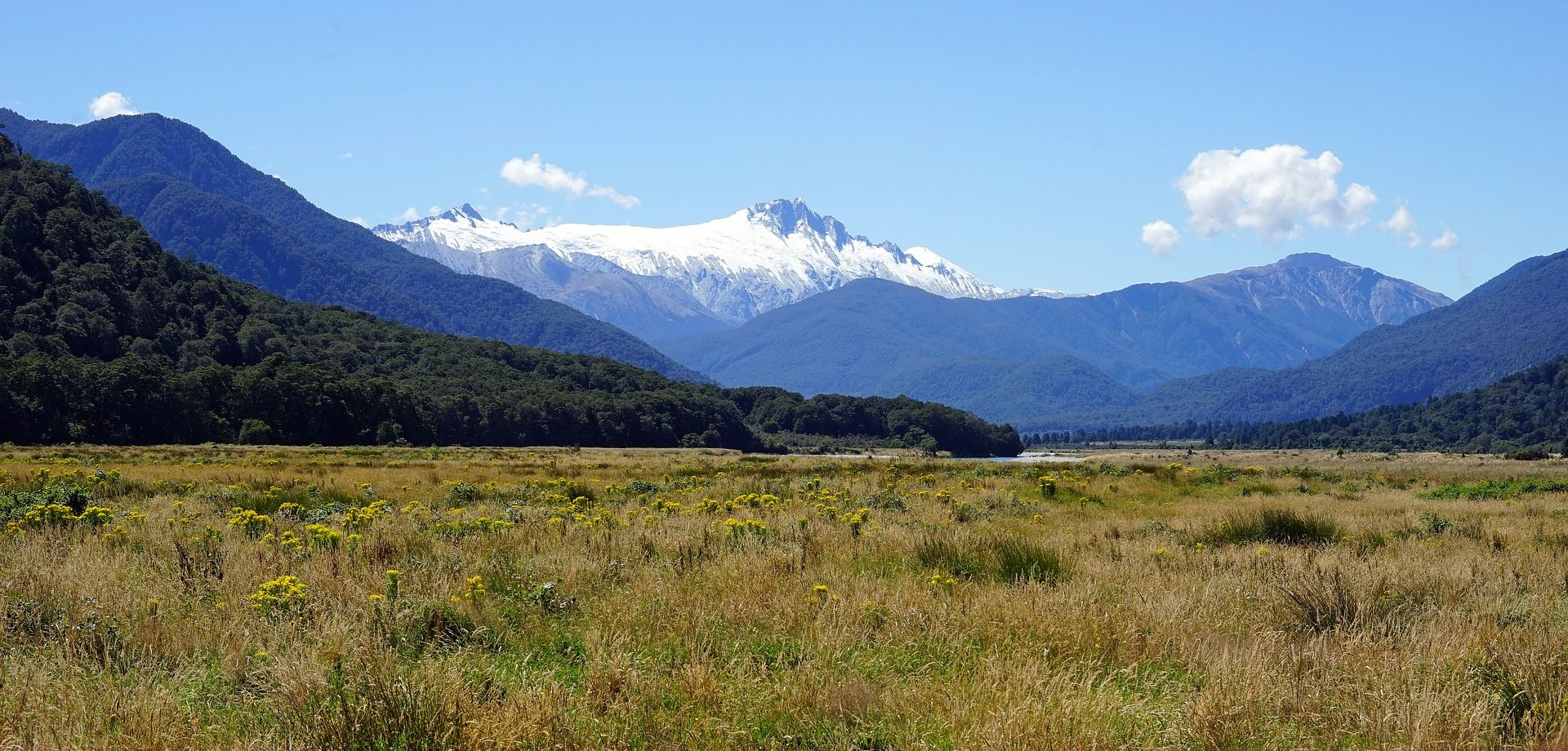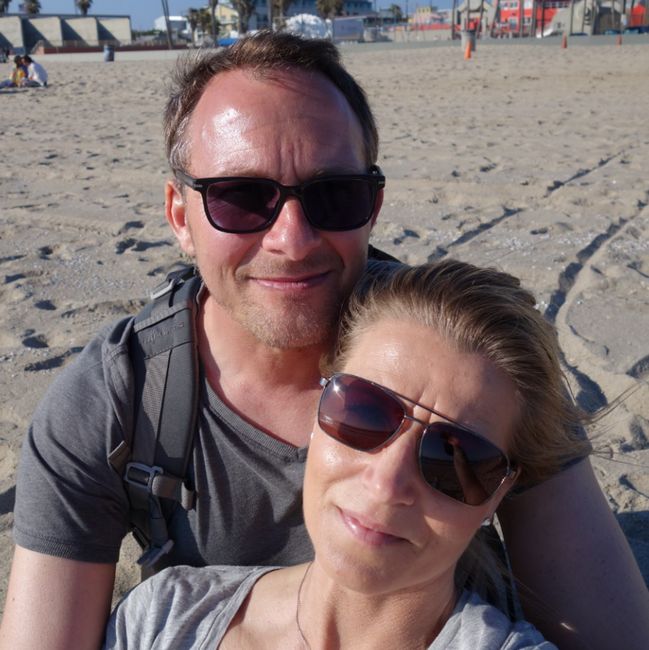Day 14 • Tongariro National Park (Whakapapa) - Rotorua
ที่ตีพิมพ์: 21.02.2018
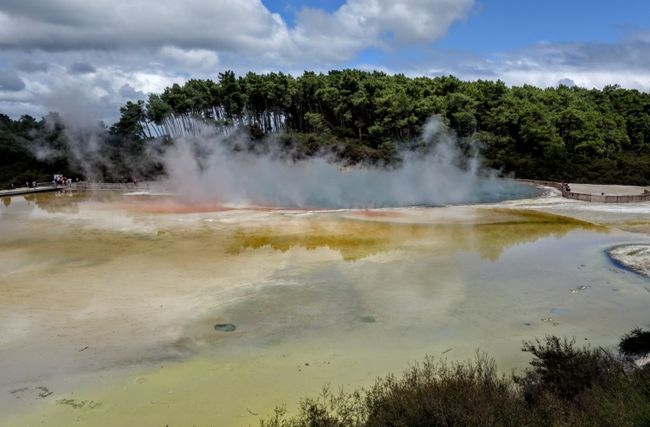
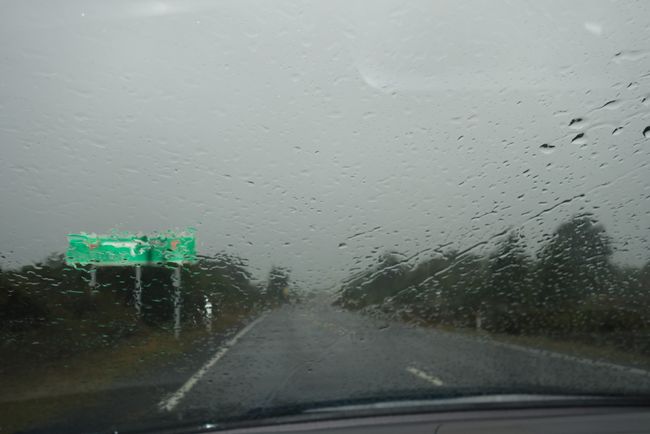
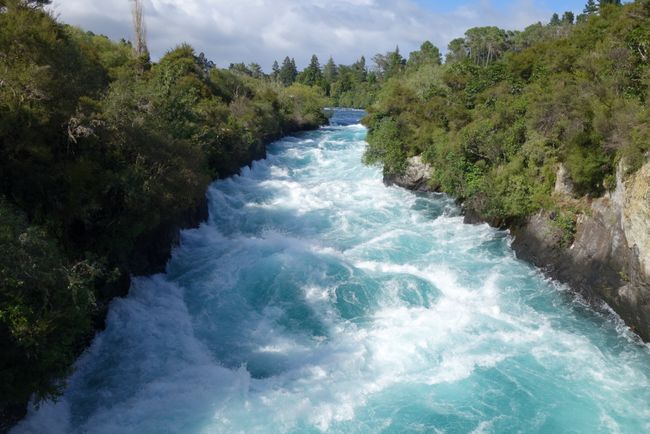
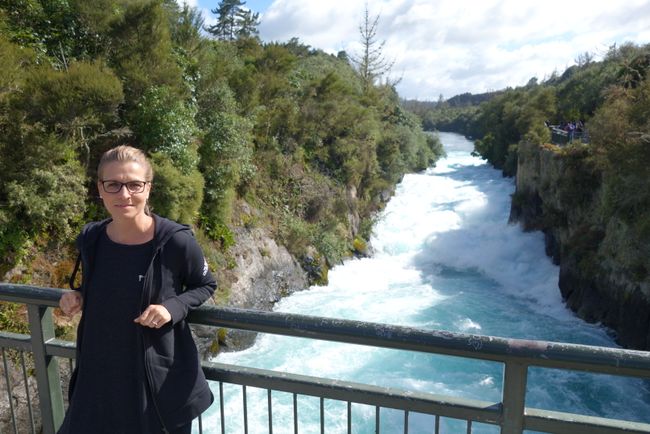
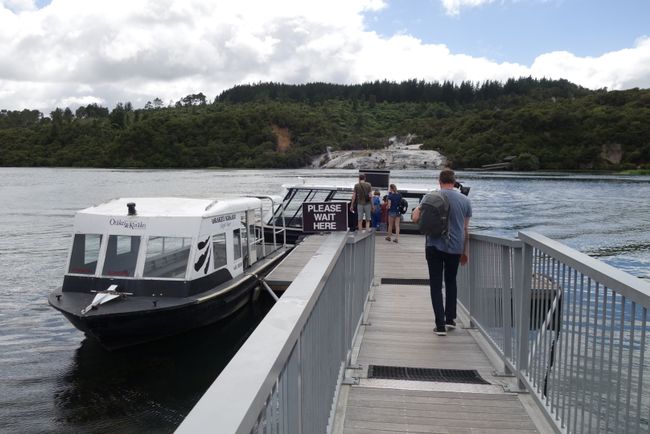
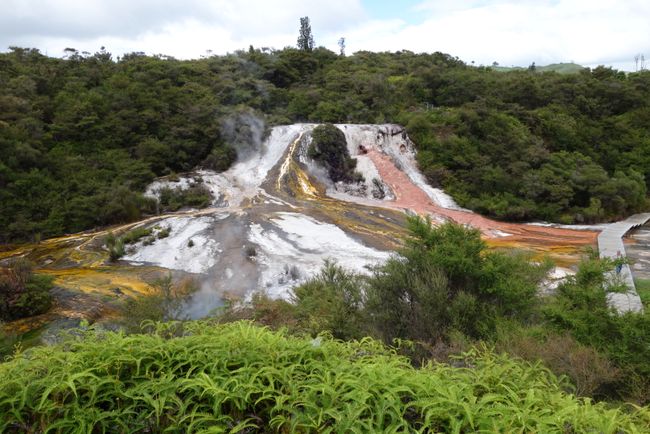
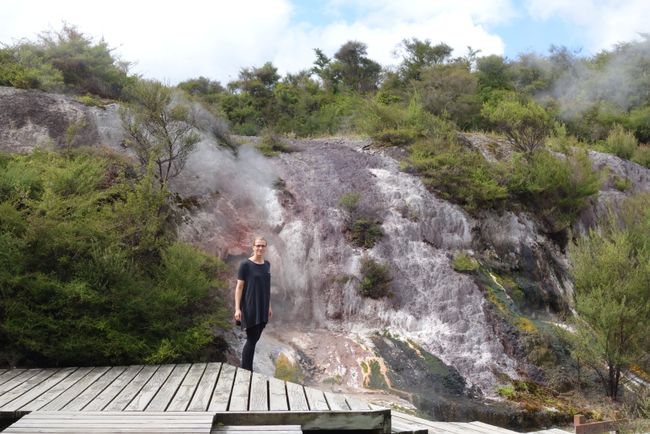
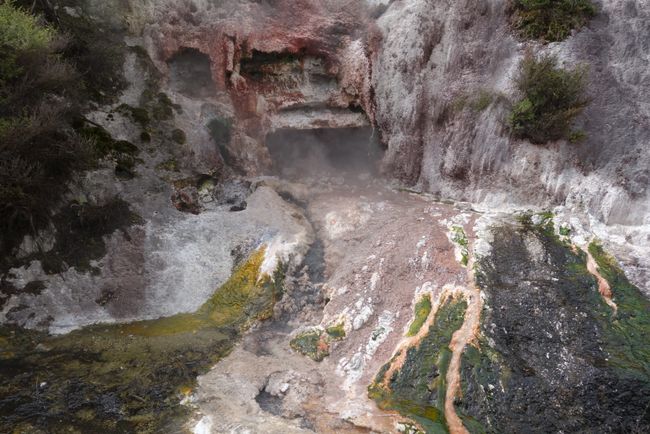
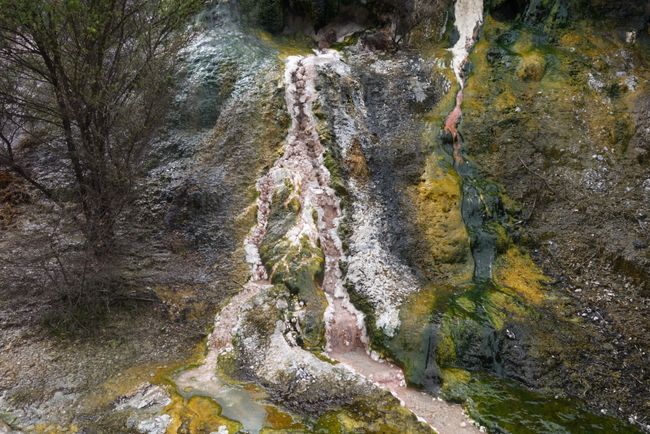
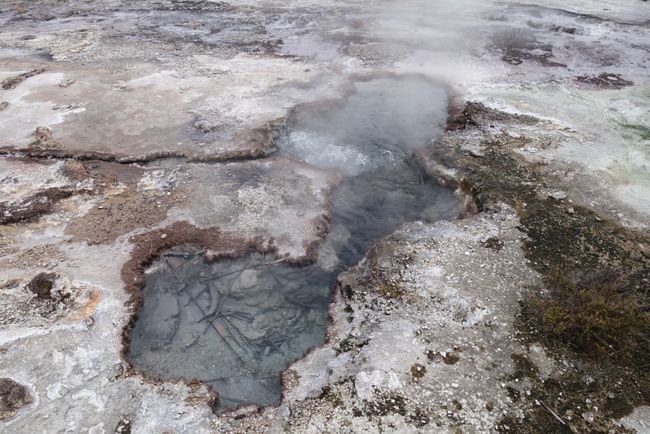
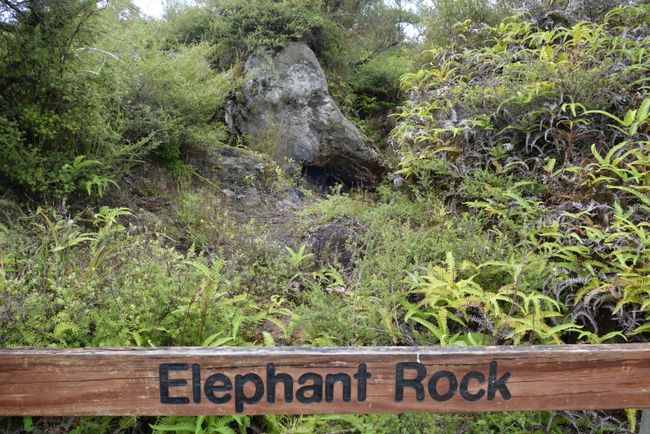
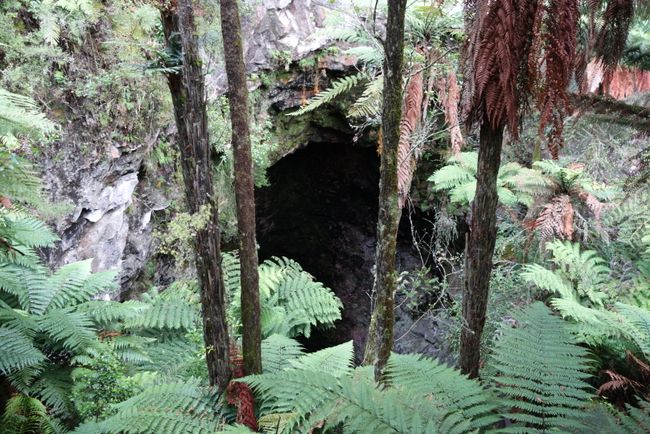
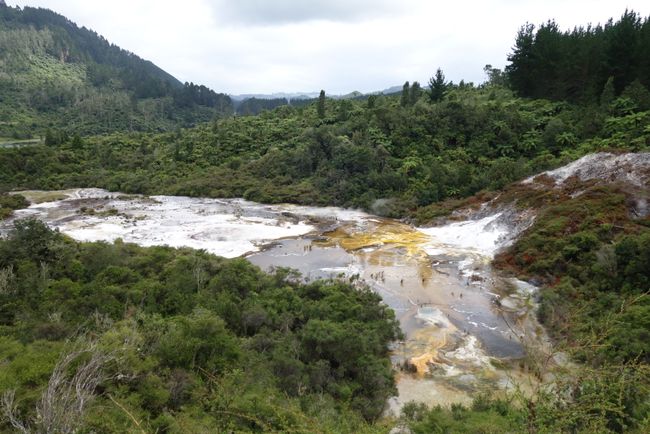
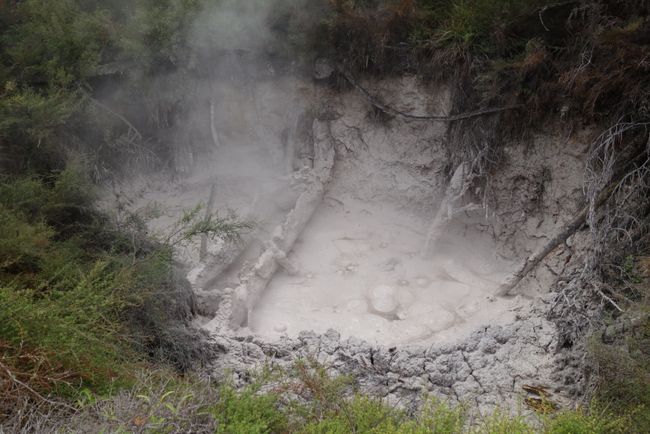
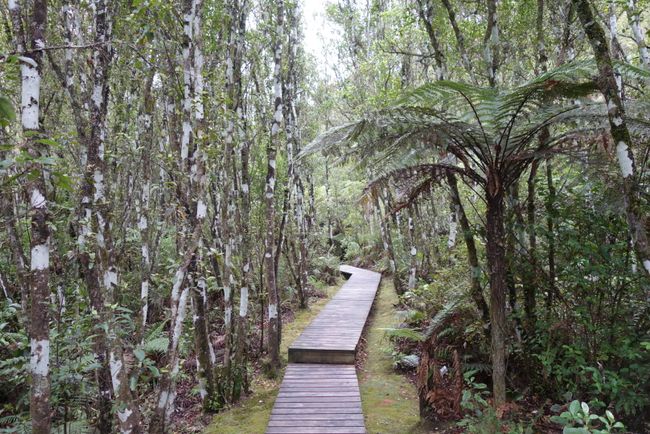
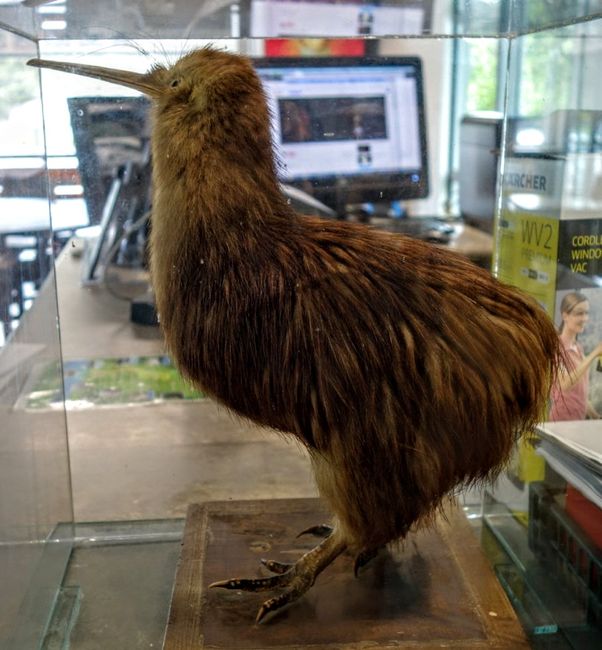
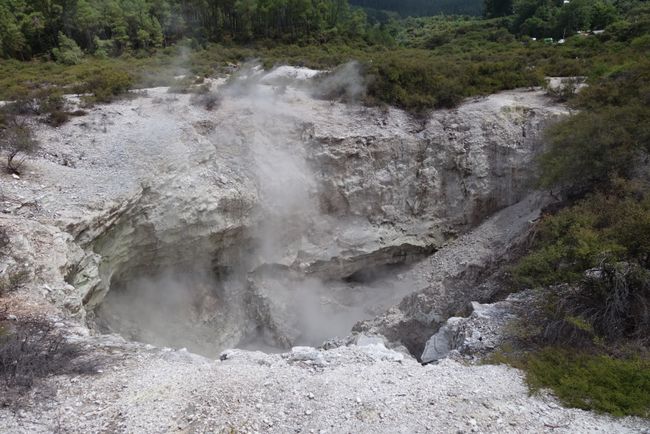
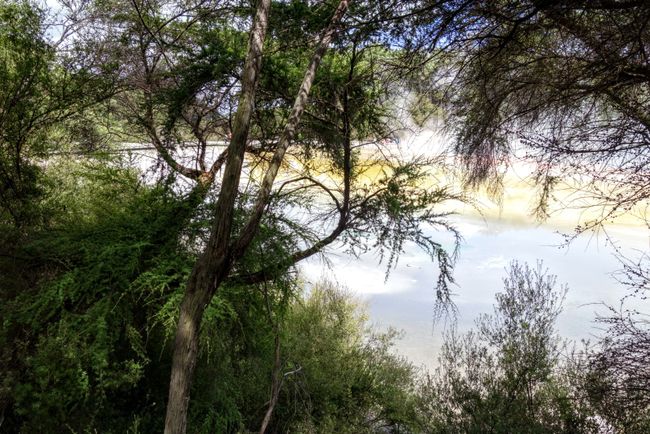
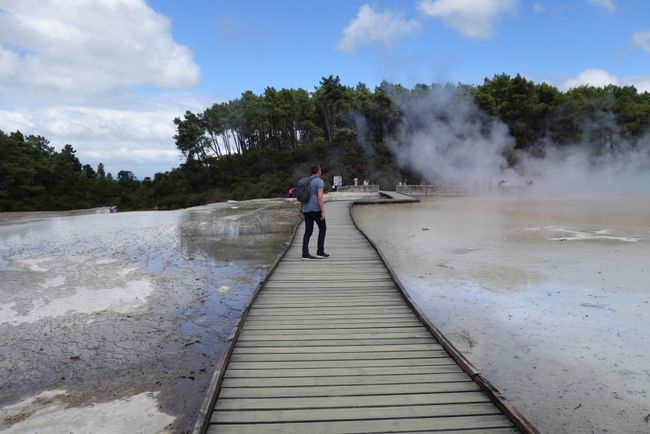
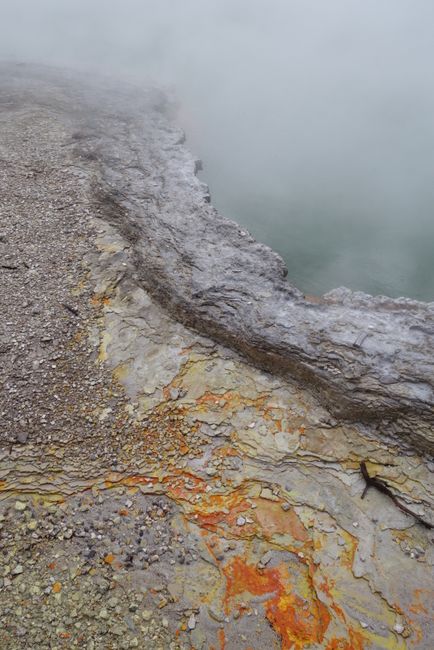
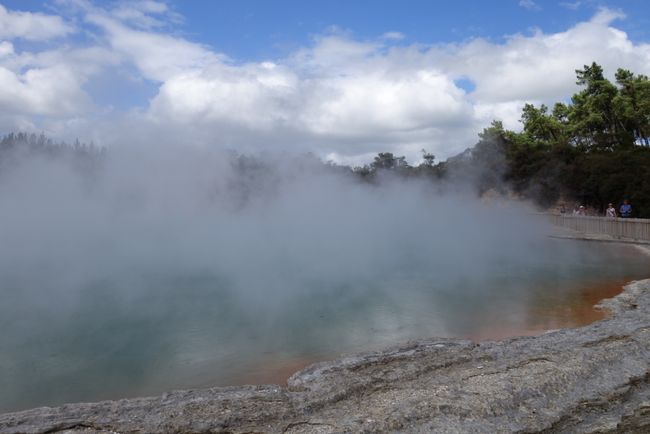
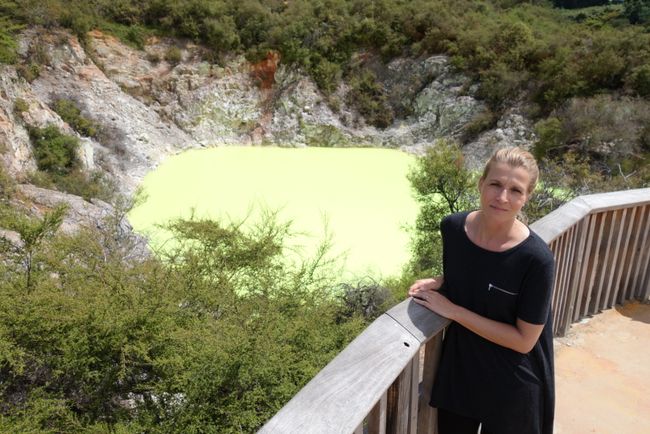
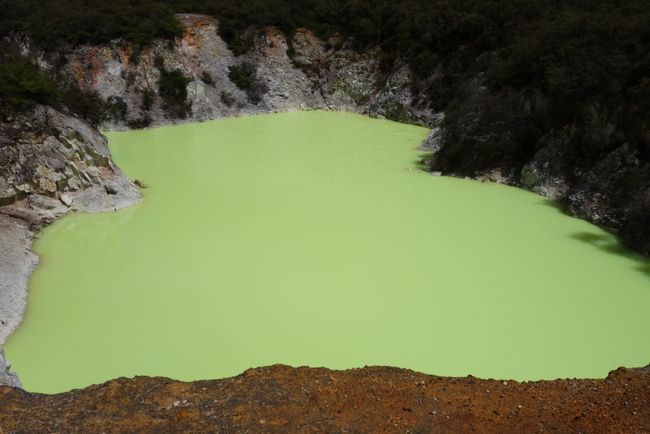
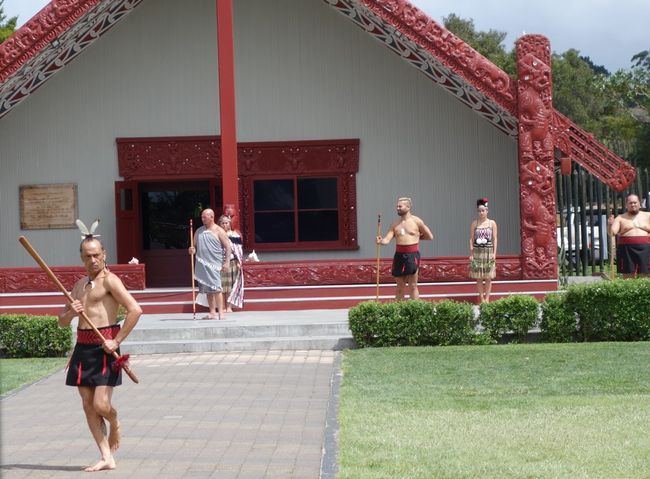
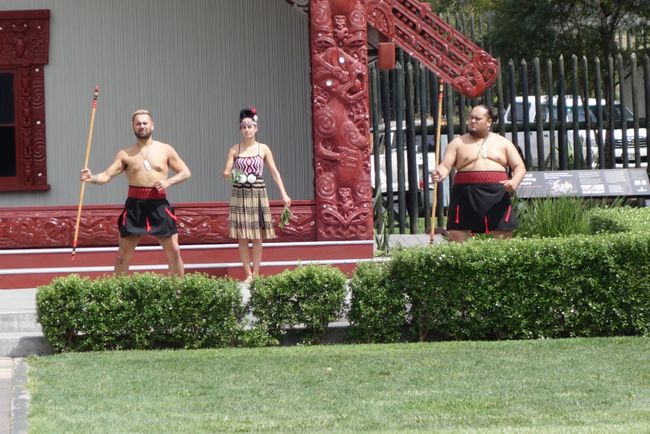
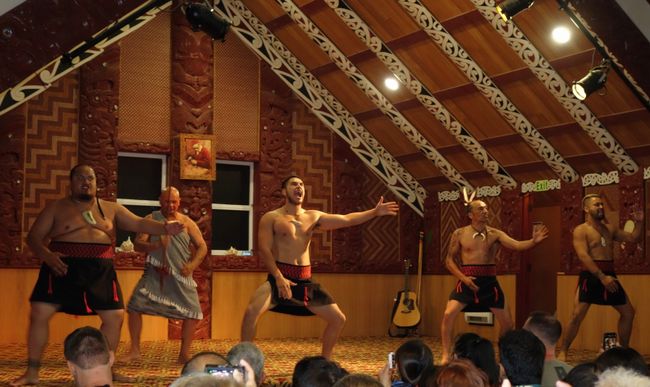
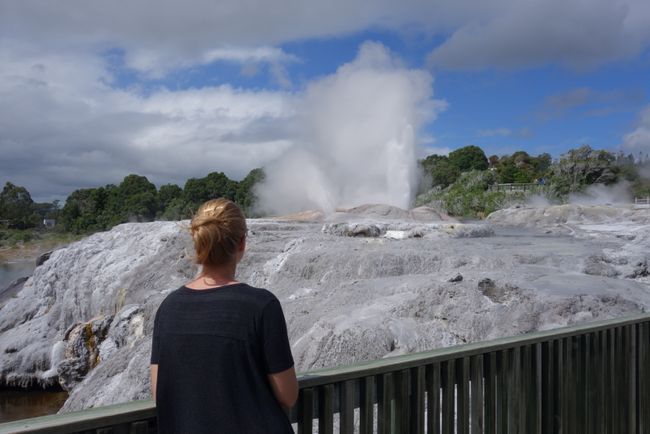
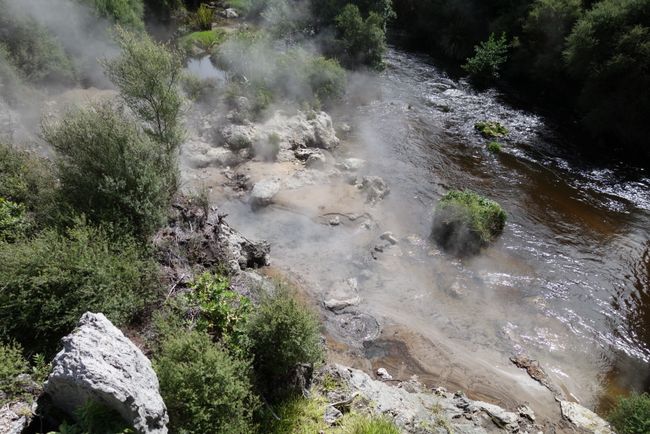
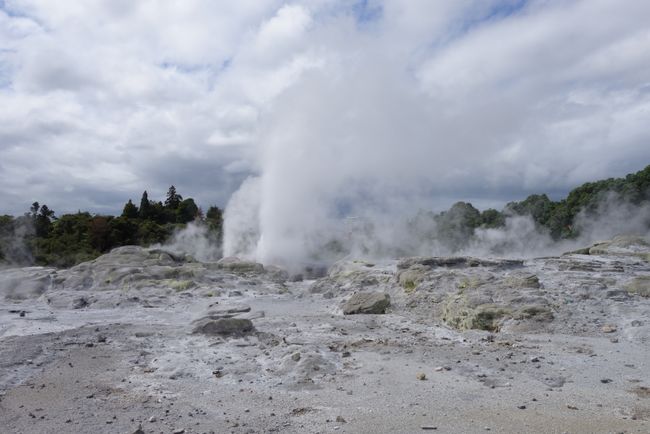
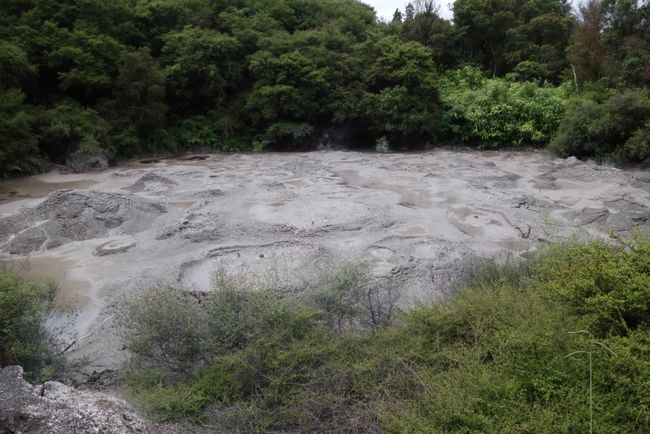
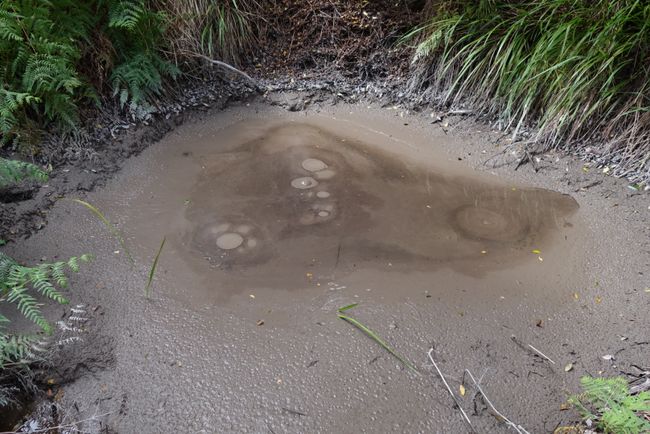
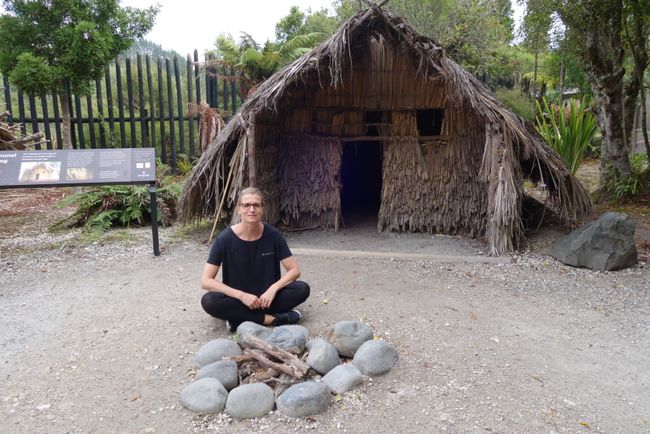
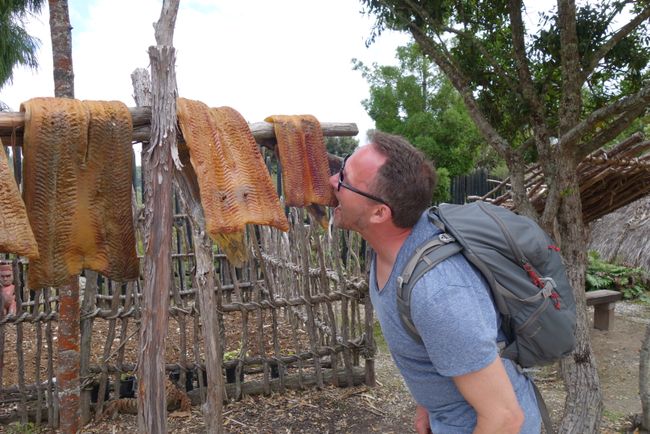
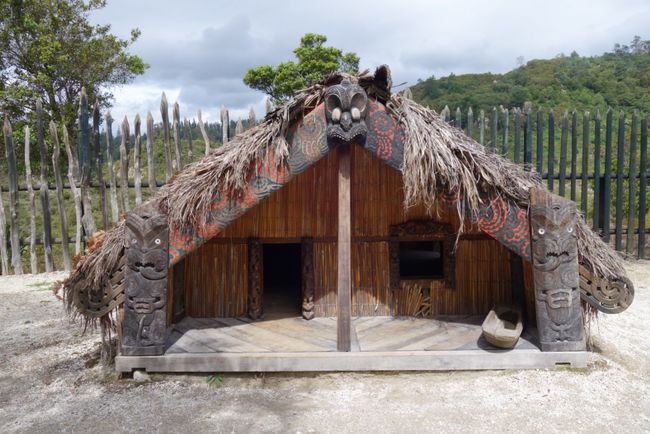
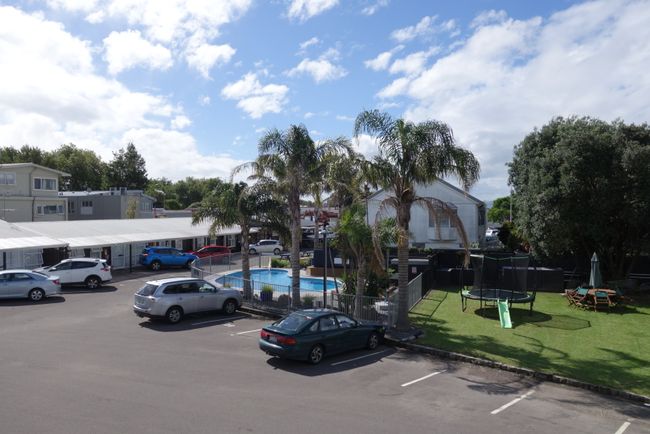
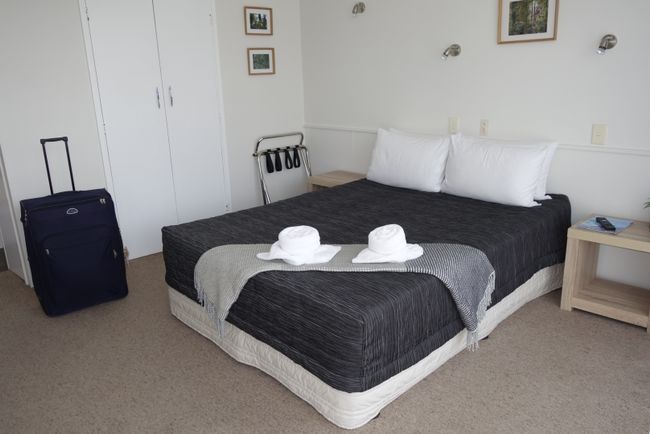
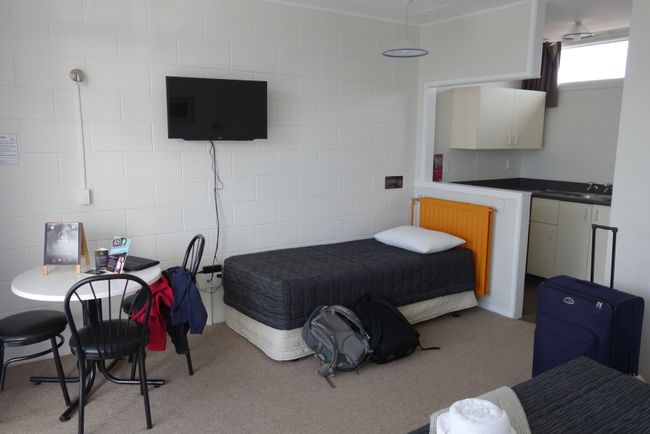
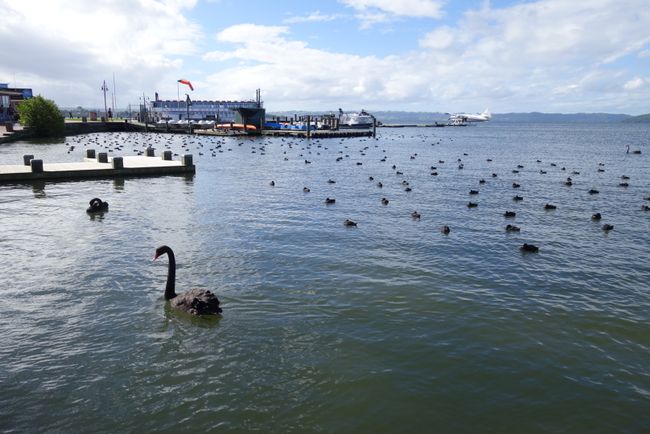
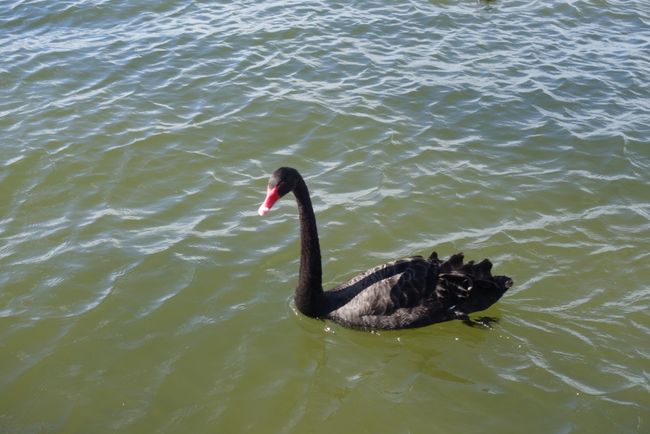
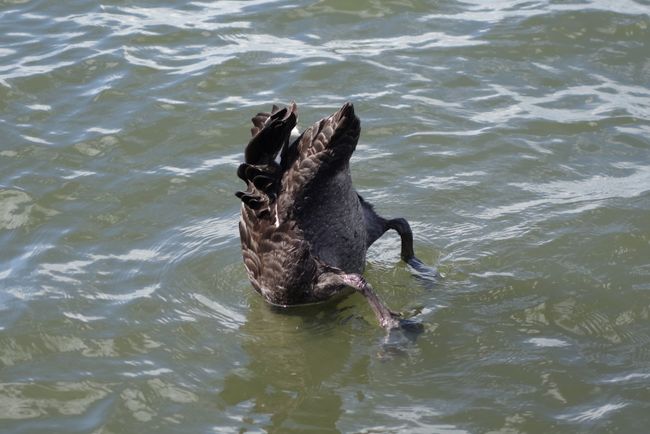
สมัครรับจดหมายข่าว
A story of hot thermal springs, geysers, and a little Maori culture ... Today was characterized by hot springs and geysers. We have read and heard a lot, but seeing a geyser up close is something very special. But we'll get to that in a moment. This morning we started in Whakapapa with pretty bad weather. So there was no second chance to capture the panorama of the volcanoes around us. So we drove directly to the first viewpoint on our route to Rotorua. The Huka Falls originate from the approximately 100-meter wide Waikato River not far from Lake Taupo, and then it flows through a only 15-meter wide canyon. About 140,000 liters of water then plunge down the 11-meter deep cliff. The amount of water would fill an Olympic swimming pool in 11 seconds. It looked spectacular. About 45 minutes south of Rotorua, nestled on the banks of Lake Ohakuri, is "The Hidden Valley" of the Orakei-Korako Cave and Thermal Park. Orakei Korako means "The Adorning Place" in translation. The nice lady at the ticket counter immediately told us that it is about 6 degrees warmer on the other side. We started this morning at 11 degrees in Whakapapa and now we already have 20 degrees on one side of the lake. So we took a small boat to the other side of the lake and found ourselves in a valley full of colors, boiling hot springs, and bubbling geysers. It was actually much warmer there. There is also the Ruatapu Cave, one of only two known geothermal caves in the world. Another one exists in Italy. If not for the sulfur smell everywhere, you could spend hours watching this natural spectacle. You need about an hour for the park to see everything. This outing was really great too. Next, we went to the Wai-o-Tapu Thermal Wonderland. In this park, there were bubbling mud pools, mineral terraces, and the bubbling and steaming "Champagne Pool". According to the information boards, minerals give the pool its bright orange color, which predominantly settles on the edge of the pool, which is also beige-yellow and turquoise blue. Rising gas bubbles also gave the pool its name. That was another highlight. You can't really imagine that all of this is just under our feet. The last point for today was the Te Puia Thermal Park. Here, there is a geyser that is active every day and shoots hot water up to 30 meters high into the air. That is a real spectacle. In this park, there is also a reconstructed Maori village. For over 700 years, the indigenous people of New Zealand lived by the hot springs. We also watched the Maori show with the Haka dance. Fortunately, we managed to avoid having to participate. :-) Some other tourists had to witness this spectacle up close. It was enough for us to watch from a distance because it was quite unusual. If you are in New Zealand, you should at least see it once. Even though it is more of a show and probably has little to do with the real Maori lifestyle. Theoretically, we could have visited the kiwi in this park. Since this little creature is not only flightless but also nocturnal, there wasn't really much to see. I took a photo of a specimen for you, which has already passed away. But at least it's not a plush toy. I really gave it my all. :-) Now we are in Rotorua, only about 500 meters from Lake Rotorua. We just went to the lake and the supermarket. My nature shots are once again unique. Mr. Kieling would be jealous. :-)))) Our destination for tomorrow is Whitianga.
สมัครรับจดหมายข่าว
คำตอบ
